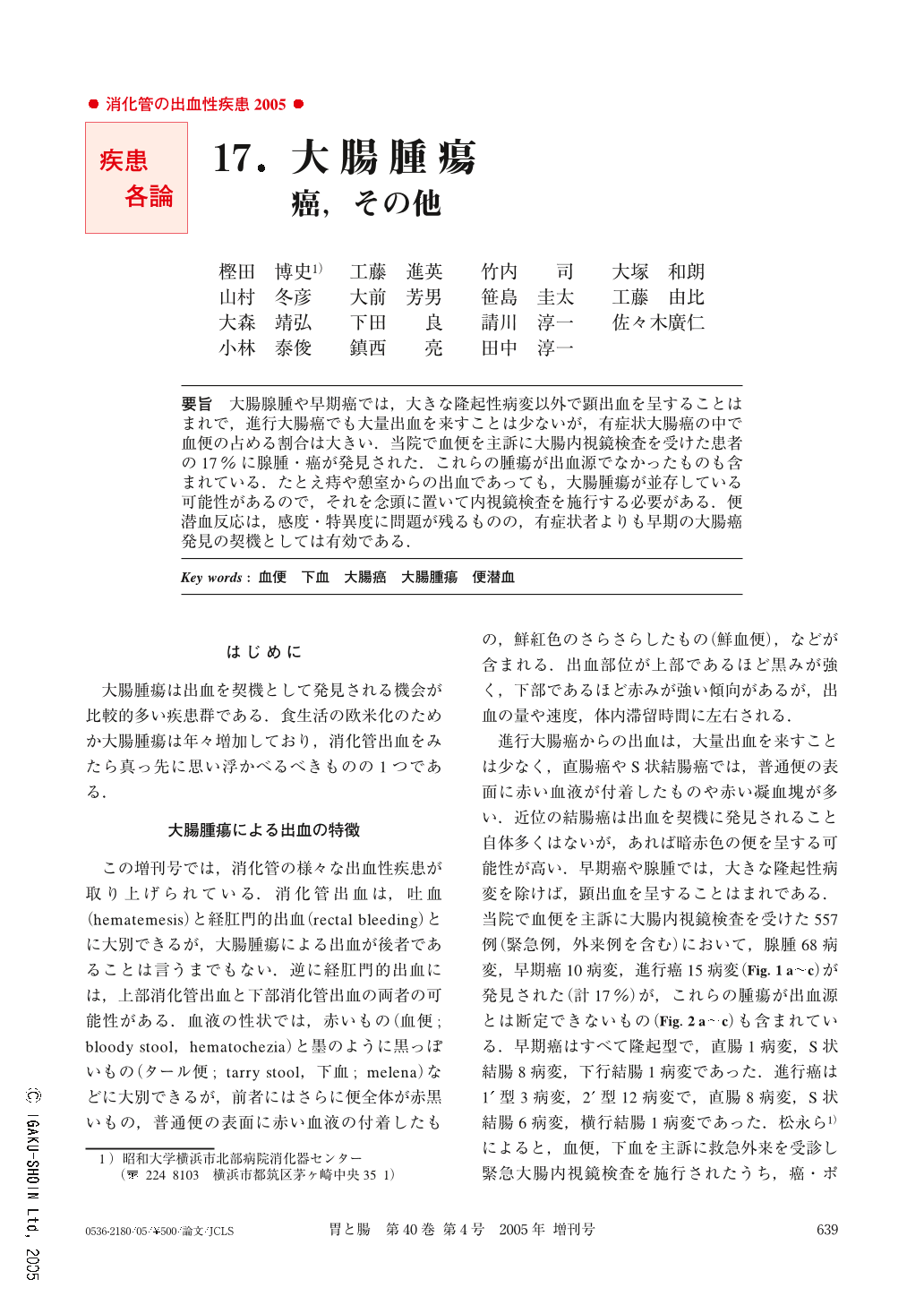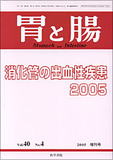Japanese
English
- 有料閲覧
- Abstract 文献概要
- 1ページ目 Look Inside
- 参考文献 Reference
要旨 大腸腺腫や早期癌では,大きな隆起性病変以外で顕出血を呈することはまれで,進行大腸癌でも大量出血を来すことは少ないが,有症状大腸癌の中で血便の占める割合は大きい.当院で血便を主訴に大腸内視鏡検査を受けた患者の17%に腺腫・癌が発見された.これらの腫瘍が出血源でなかったものも含まれている.たとえ痔や憩室からの出血であっても,大腸腫瘍が並存している可能性があるので,それを念頭に置いて内視鏡検査を施行する必要がある.便潜血反応は,感度・特異度に問題が残るものの,有症状者よりも早期の大腸癌発見の契機としては有効である.
Colorectal cancers do not frequently bleed massively. It is even rarer that colorectal adenomas, except for very large ones, cause macroscopic rectal bleeding. On the other hand, hematochezia is the most frequently encountered symptom in cases with colorectal cancer. Adenomas and/or cancers were detected in 17 % of the patients who underwent total colonoscopic examination due to hematochezia, although the neoplasias which were found were not always considered to be the source of the bleeding. Even in patients with rectal bleeding ascribable to hemorrhoid or diverticulum, a colonoscopic examination should be performed bearing in mind the possible existence of a neoplasm. The symptomatic colorectal cancers were more advanced than those which were free of symptoms and which were found by colonoscopic examination performed because of positive fecal occult blood. Immunological fecal occult blood test is imperfect in both sensitivity or specificity, but is useful for picking up candidates for colonoscopy.

Copyright © 2005, Igaku-Shoin Ltd. All rights reserved.


